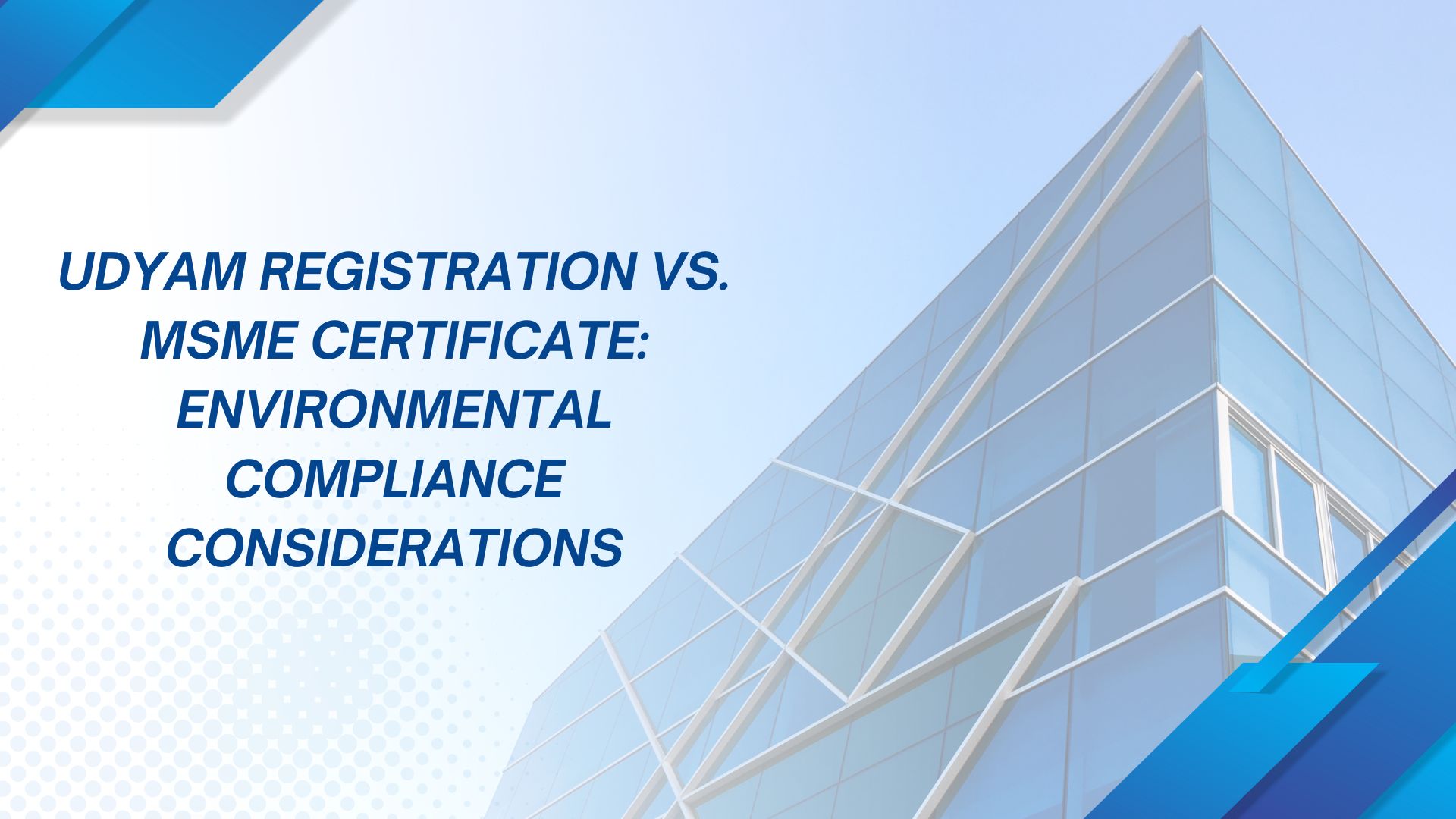Introduction
In India, small and medium-sized enterprises (SMEs) play a crucial role in driving economic growth and providing employment opportunities. Recognizing their significance, the government has introduced various schemes and certifications to support SMEs, such as Udyam Registration and the MSME (Micro, Small, and Medium Enterprises) Certificate. While both these initiatives aim to facilitate business growth and provide benefits to SMEs, they also come with important environmental compliance considerations. In this article, we will delve into the intricacies of Udyam Registration and the MSME Certificate concerning environmental regulations, helping SMEs make informed decisions and contribute to sustainable development.
Understanding Udyam Registration and MSME Certificate
Udyam Registration and the MSME Certificate serve distinct purposes but often overlap in their applicability to SMEs. Let’s start by defining each of these and their primary objectives.
Udyam Registration:
Udyam Registration, introduced in 2020, is a government-recognized online portal aimed at simplifying the registration process for small businesses. It classifies businesses based on their investment in plant and machinery or equipment and annual turnover. The main objective of Udyam Registration is to enable SMEs to avail benefits such as easier access to credit, subsidies, and various government schemes.
MSME Certificate:
The MSME Certificate, on the other hand, is a formal recognition of a business as a Micro, Small, or Medium Enterprise. This classification is based on criteria like investment in plant and machinery or equipment and annual turnover. The MSME Certificate is crucial for availing several incentives and benefits provided by the government, such as priority lending from banks, subsidies, and exemptions.
Environmental Compliance Considerations
As SMEs pursue Udyam Registration or obtain the MSME Certificate, they must not overlook their responsibilities towards environmental compliance. Environmental regulations and sustainability have gained increasing importance in recent years due to the growing global concern for the environment. Here are some key considerations:
Pollution Control:
SMEs need to comply with pollution control laws and regulations applicable to their specific industry. This includes obtaining necessary permits and approvals, adhering to emission limits, and implementing pollution control measures. Failing to do so can result in legal penalties and damage to the environment.
Waste Management:
Proper disposal and management of waste generated during business operations are crucial. SMEs should follow guidelines for waste segregation, recycling, and disposal as per environmental norms. They must also explore opportunities for reducing waste generation to minimize their environmental footprint.
Energy Efficiency:
Enhancing energy efficiency not only reduces operational costs but also contributes to environmental sustainability. SMEs should consider adopting energy-efficient technologies and practices to minimize energy consumption and greenhouse gas emissions.
Renewable Energy:
To further their environmental commitments, SMEs can explore renewable energy sources such as solar power. Utilizing clean energy not only reduces carbon emissions but can also lead to cost savings over time.
Compliance Reporting:
Keeping accurate records of environmental compliance activities is essential. SMEs should maintain records of emissions, waste management, and energy consumption, which may be required for reporting to regulatory authorities.
Green Certifications:
SMEs that are committed to environmental sustainability can pursue certifications like ISO 14001 (Environmental Management System) to demonstrate their dedication to environmental compliance and sustainability.
See Also: Udyam Re-Registration
Conclusion
Udyam Registration and the MSME Certificate are valuable tools for SMEs, offering a range of benefits that can foster business growth and development. However, it is vital for SMEs to understand that these certifications do not exempt them from their environmental responsibilities. Environmental compliance is an integral part of sustainable business operations and societal well-being.
By adhering to environmental regulations and adopting eco-friendly practices, SMEs can not only avoid legal repercussions but also contribute to a cleaner and more sustainable future. Combining the advantages of Udyam Registration or the MSME Certificate with a strong commitment to environmental stewardship can lead to a win-win situation, where SMEs thrive while safeguarding the planet for future generations.

